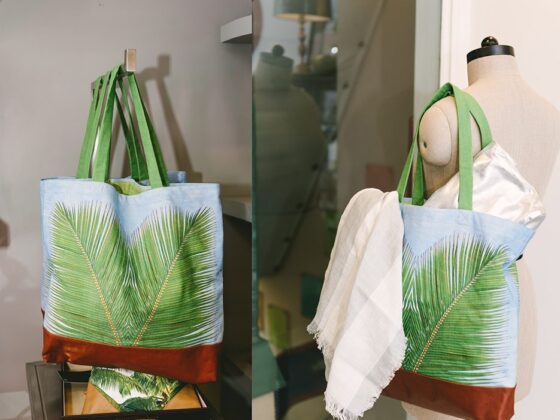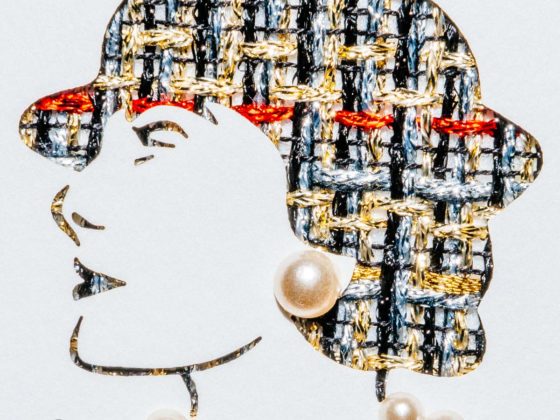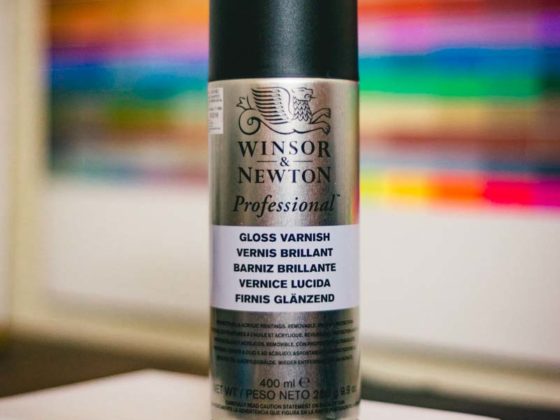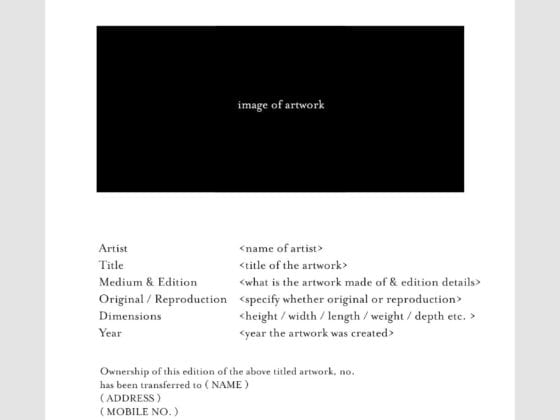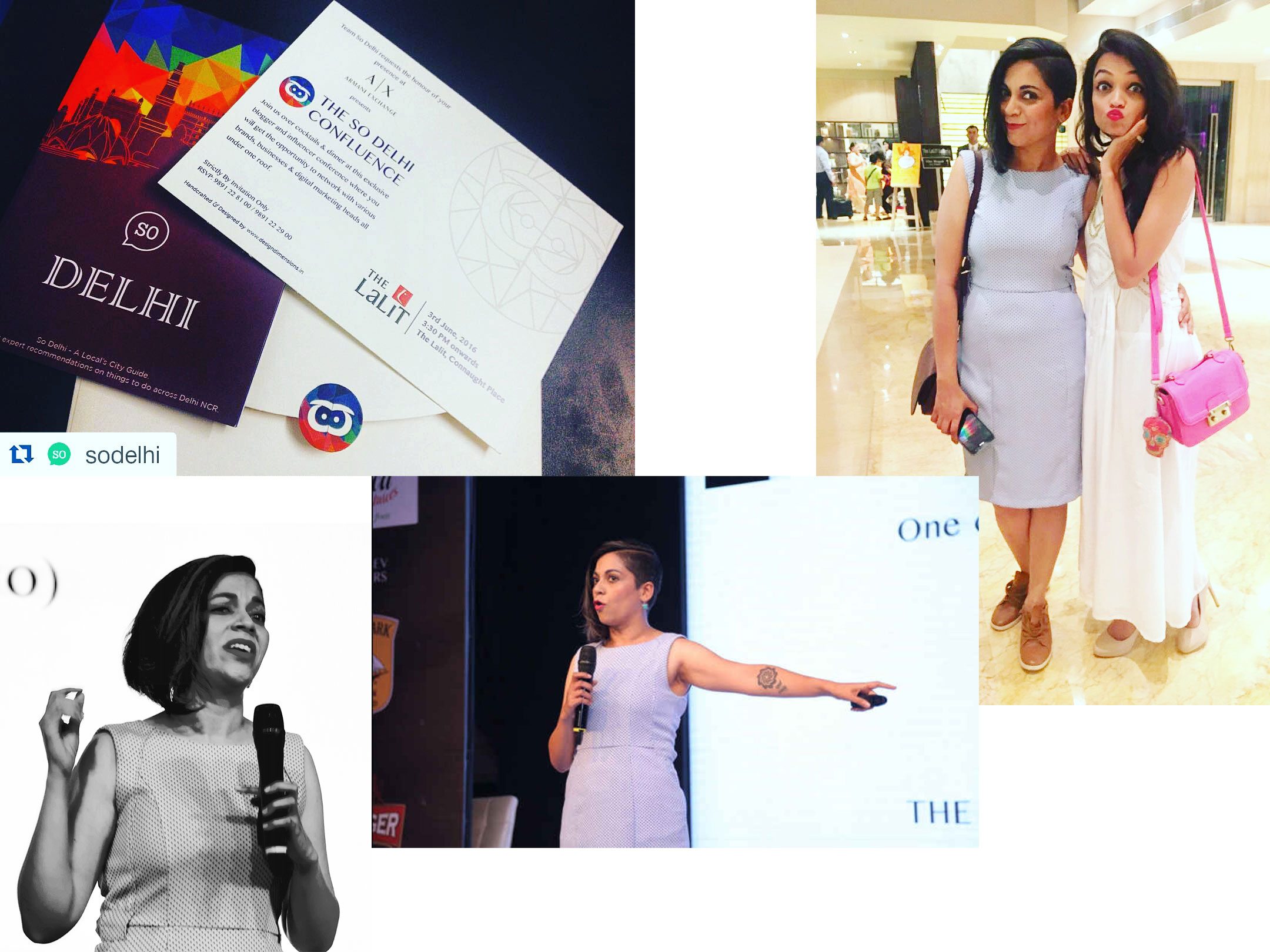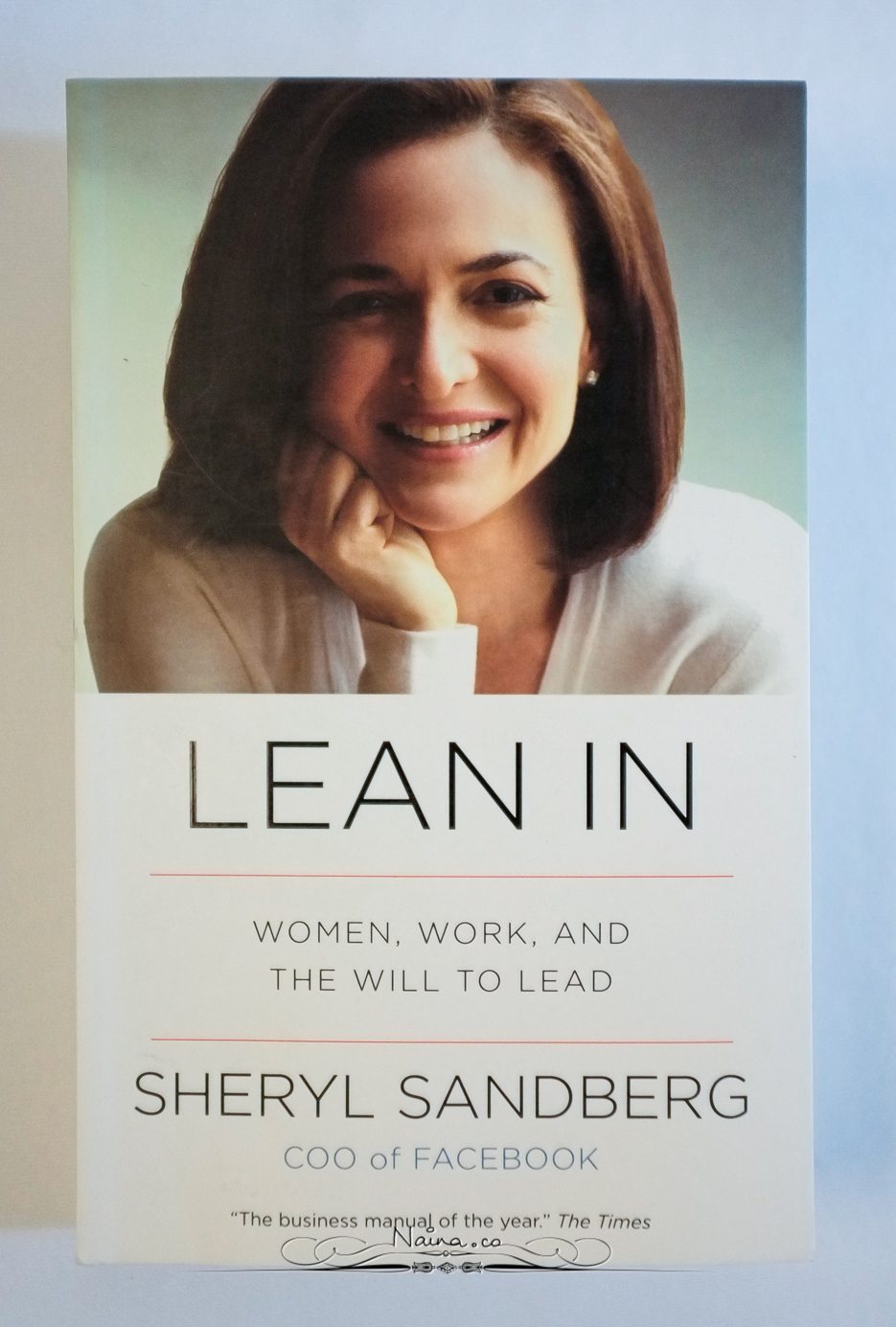
The book is about how gender issues affect women in the workplace. To put it mildly.
While the book focuses on issues faced by women internationally on a daily basis throughout their careers, it is relevant for men to read as well. And women must definitely read it. I consider myself slightly more well-read than the average and slightly more aware of my surroundings as well. I don’t “coast along”. I live consciously. Or so I thought.
Sheryl’s book made me think. It horrified me and encouraged me and while I don’t work in an office and neither am I an “employee”, I do face similar hurdles that women face the world over.
[/textcol]
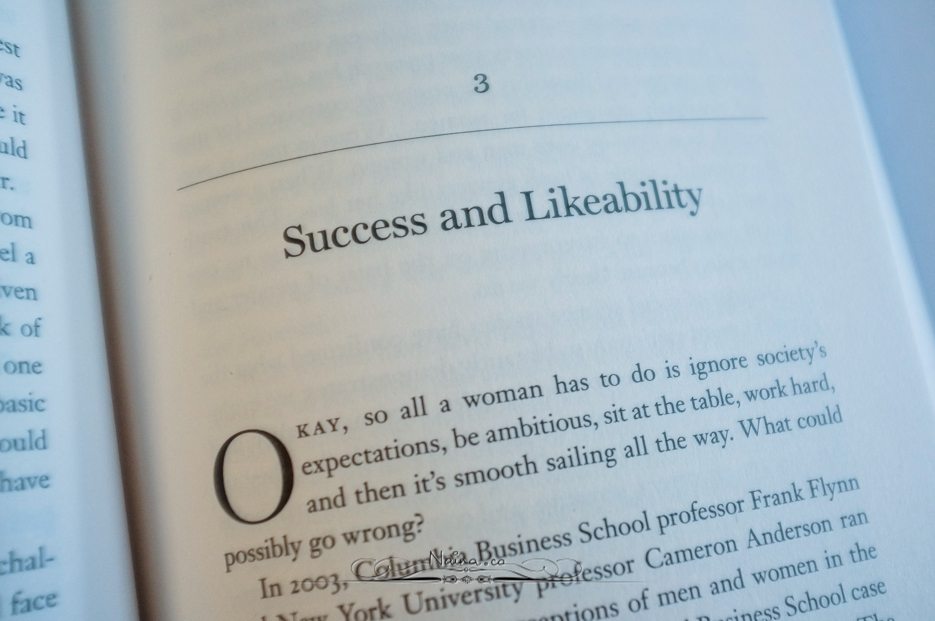
India especially has been dealing with a different kind of discrimination against women : rapes and gang rapes. When I have to constantly worry about basic survival, gender issues in the self-employed workplace are at the back of my mind.
Nonetheless, Lean In is a good place to start. Sheryl’s basic tenets include encouraging women to “Sit at the table”.
I too have seen this first hand and faced it. After B-School, at my first job, my male boss did not take me with him for meetings with GM’s at factory shop floors. My job as a management trainee was more “in the office”. When I insisted that I wanted to learn hands on, I did got to go with him but he warned me nonetheless – I wasn’t sure about what. The meetings went somewhat like this :
My boss and I would enter the office of the GM – always male – and he would exclaim, “Oh hello Bala! And who is this pretty young thing?” It happened twice and I no longer wanted to “tag along”. Have you ever heard anyone say, “And who is this handsome young fella?” to a guy? If you have, it’s probably been at a family get together being said by an elderly lady or some such.
When I started my self-employed career, I visited various offices to meet with prospective clients and a majority of them asked me where my male boss was.
Even now when I sometimes photograph events and have a male assistant who carries my bags etc., people generally assume he is my boss and I am his subordinate doing all the work. It’s hilarious and my assistants are usually embarrassed but that does not take away from the real problem.
[/textcol]
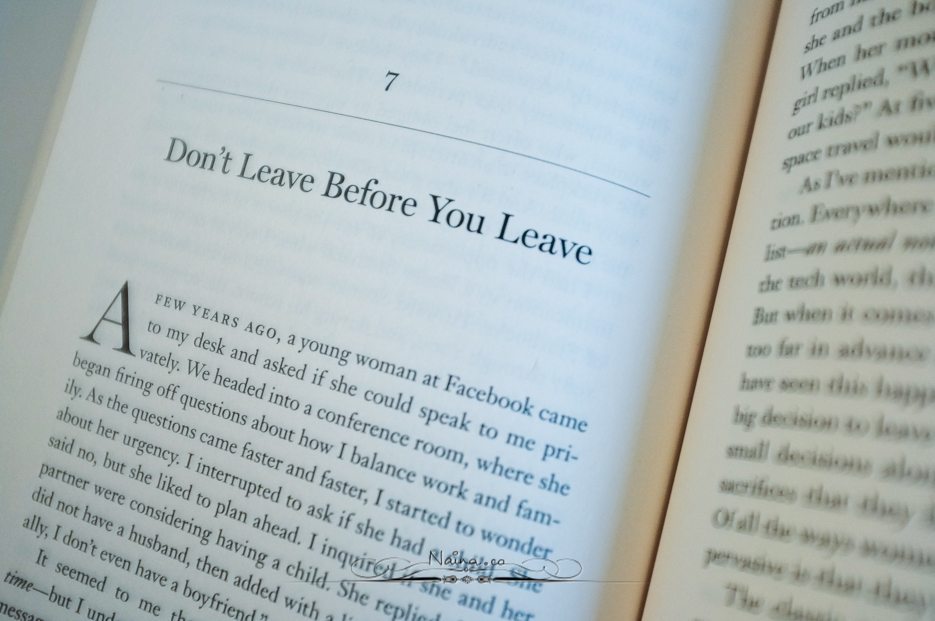
If she chooses to focus on a “career”, she isn’t the “family type”. If she chooses to focus on family, she isn’t ambitious enough. It is as if women are the only ones being measured against exacting standards for everything.
Women talking about the progress of women or the feminist movement are immediately labeled – mostly sub-consciously – as “men haters”. And both men and women do this. Men aren’t the only ones who use female-centric abuses – women do too. Women judge each other on appearance more than men do.
I remember one of the fashion weeks I was covering – it was one of my first ones. The photographer’s pit was all-male. Those men were reeking of sweat, most were dressed in worn-out work gear, looked like they’d been doing this for a million years and stared at me wide-eyed when I walked up to the pit and sat down on the stool right up front in the middle – usually a prime spot. I always sit at the table.
“A feminist is someone who believes that women are people too.” [ Borrowed from a well-respected feminist senior friend & mentor. ] And that right there is the best way to put it.
Speaking of mentors, Sheryl has dedicated a whole chapter on mentors and sponsors for women and how these are important for their career growth and progression. And how it isn’t as simple as “Will you be my mentor?”
I am fortunate to have a female mentor who pushes me, advises me, encourages and prods me and makes me think. I too wanted a mentor all my life but never could imagine having a male mentor. My mentor found me when I was 30 years old. I didn’t find her. She did. She saw something that would flourish with some help and she dug her heels in to support and collaborate. I won’t go as far as saying that I mentor her too but I know she also derives some “light” from me. It is fantastic to have someone who is smarter than I am who also champions my work and life.
Sheryl also talks about the impostor syndrome and that women encounter it more than men do and I felt relief when I read that.
[/textcol]
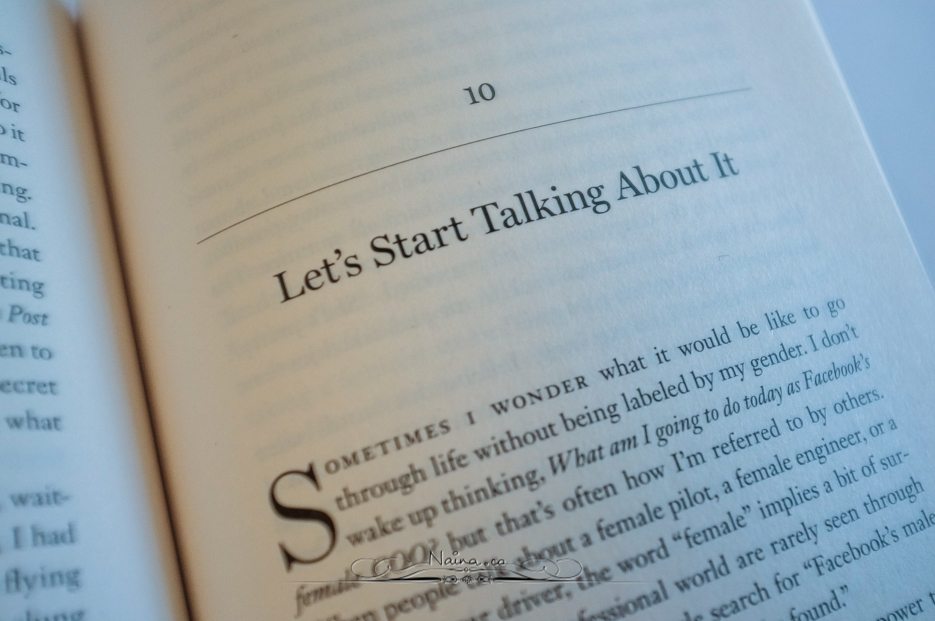
Lean In is a well-researched book with anecdotes from Sheryl Sandberg’s life. She is the COO at Facebook now but she has worked her way up from other places. She’s had mentors and peers who have been supportive and she herself has recognized and made a decision to speak up about gender issues affecting women.
I agree with her assessment that for women’s condition to improve globally, we need more women in power.
I will end with the back-of-the-book excerpt:[/textcol] [leftcol]”In 2012, Sheryl Sandberg, chief operating officer of Facebook, gave an electrifying TEDTalk – viewed more than 2 million times. In it she described how women unintentionally hold themselves back in their careers and encouraged women to “sit at the table”, take risks, and pursue their goals with gusto.
Sandberg digs deeper into these issues in Lean In and examines why – despite the progress women have made – men still hold vast majority of leadership positions in government and industry.[/leftcol][rightcol] She combines personal anecdotes, hard data, and compelling research to cut through layers of ambiguity and bias surrounding the lives and choices of working women. She describes specific, practical steps women can take to combine professional achievement with personal fulfillment and demonstrates how men can benefit by supporting women in the workplace and at home.
Written in both humor and wisdom, Sandberg’s book is an inspiring call to action and a blueprint for individual growth. Lean In is destined to change the conversation from what women can’t do to what they can.”[/rightcol] [textcol] The foreword is by Naina Lal Kidwai, Director HSBC Asia-Pacific and Country Head, India.
I would also recommend reading this review on Dissent Magazine. It is a long read.
[ You can purchase the book on InfiBeam. Most other places show it on pre-order. The link uses my affiliate code. ]
[/textcol]


